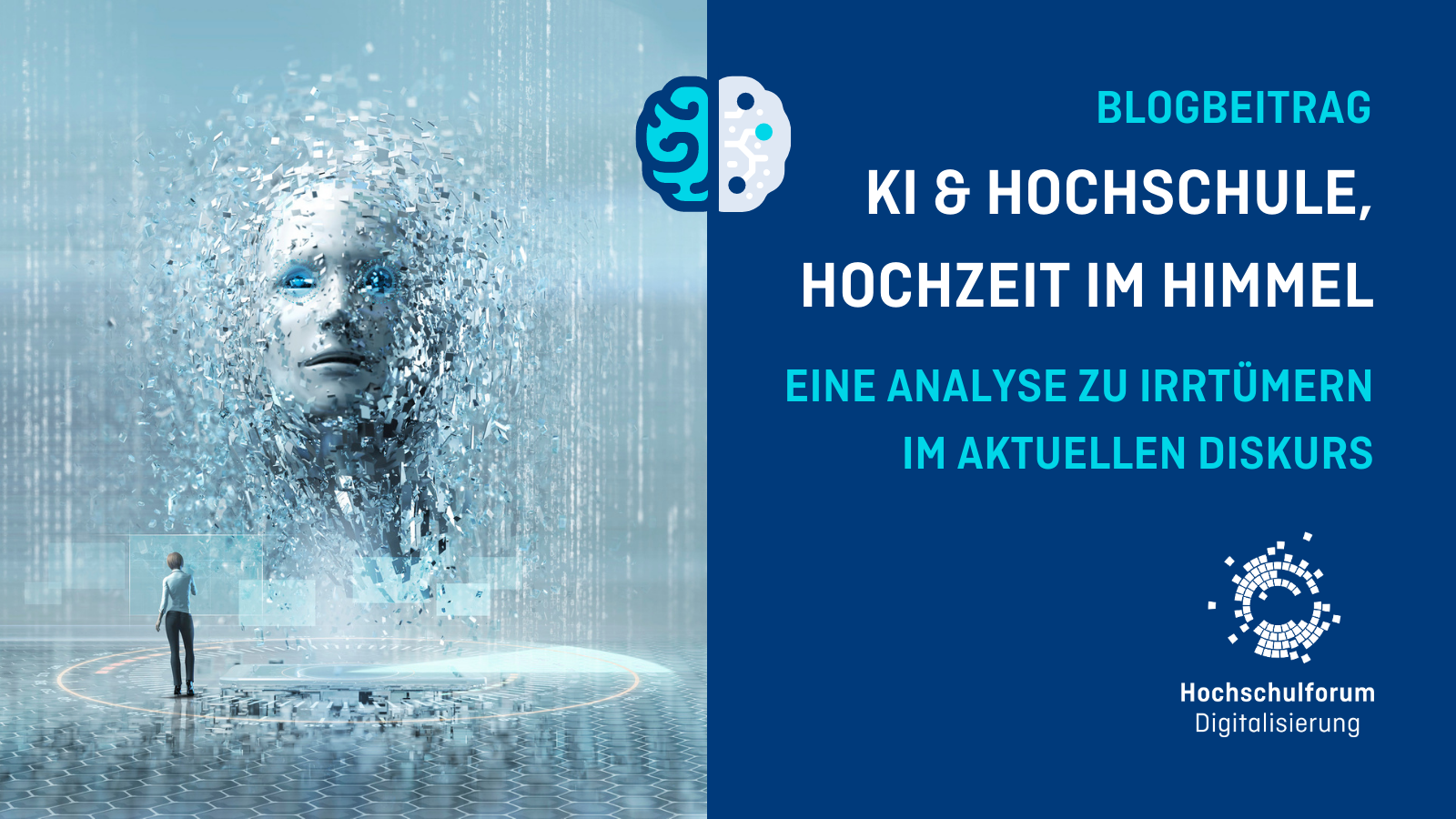“It’s a big wake-up call for teachers and policymakers”
“It’s a big wake-up call for teachers and policymakers”
31.08.17
From 27th to 30th of June students from all over Europe took part in the Workshop “Reinventing education in the digital era” and the GLC Summit. Within this context, several students interviewed participants of the summit. Isabell Fries and Florian Dercks talked to Kati Tiainen. Kati Tiainen has a Master of Education from the University of Helsinki. In 2004 she began to work for Microsoft as Academic Program Manager. Now she is Digital Learning and Strategy Director and responsable for Microsoft education business in Central and Eastern Europe.
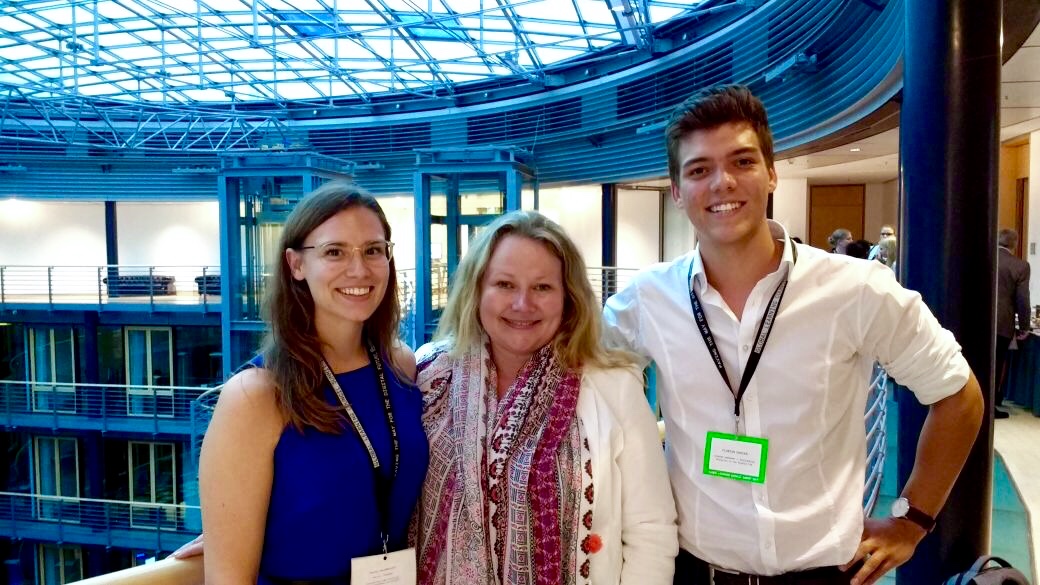 At the Global Learning Council Summit, we had the opportunity to speak with Kati Tiainen (Microsoft, Director of the Global Digital Learning Strategy Team) about the digital change in the educational system. Our main questions: What are future trends and what are the challenges to tackle them? And what does what Microsoft do to make their ideas come true?
At the Global Learning Council Summit, we had the opportunity to speak with Kati Tiainen (Microsoft, Director of the Global Digital Learning Strategy Team) about the digital change in the educational system. Our main questions: What are future trends and what are the challenges to tackle them? And what does what Microsoft do to make their ideas come true?
Prior to the GLC, we participated in a workshop offered by Hochschulforum Digitalisierung with the aim to develop a vision on what education will look like in twenty years (you can find the scenarios here). Against this background, we passed on the questions to Kati Tiainen.
The dream of free education for everyone through a digital transformation of the educational process resembles our gamechanging idea from the workshop. “We want to help the schools to teach their pupils to develop those skills which will be needed in the future.” To make that happen, “the whole eco-system has to change and understand that we have to move on”. Right now, only single schools or teachers take the initiative and re-develop education in their classroom by including advanced teaching methods such as Flipped Classroom or Microsoft´s offer to go on a virtual field trip. To change this single-motivated transition, Microsoft´s GDLST is engaged with most of the important stakeholders in the education process; starting with ministries, other businesses, industry, publishers, the IT sector and schools themselves in order to create a platform where digital teaching and learning is becoming an integral part of school education. “We have to do new things” with the provided technology and see where they can be wisely used. “Right now we see a lot of failure but that is also one reason why our team exists: We want to learn from success stories and from examples which are not working”.
How can we realise the digital transformation?
The challenge is, all the policymakers say that the transformation is important. But how do we get from the speech to the action? Policymakers overestimate the power of policies. They should set concrete goals and have CPI’s for this transformation (like big companies are doing). Kati demands new organisations between national policy makers, regionals and industries- to have a dialogue with the whole educational ecosystem (students, teachers, parents, ministries and industries) on how the digital change really looks like in reality and how to define it. A clear roadmap and defined goals will help on this way. The knowledge practices are so outdated, that “we lose the next generations.” Being a digital native is not enough anymore in this times: “It’s a big wake-up call, that both teachers and policymakers have to decide how we build the new digital transformation and the knowledge practices.” We should use the new technologies to collaborate in knowledge transfer. It’s still a long way to go, but according to Kati there are exciting times ahead us.
Teacher’s education
One of the first steps to be taken is adjusting the teacher´s education. The demands they have to fulfill today slowly changed over the couple of years; their education did not. The requirement profile of a teacher will even shift further over the next decades. Therefore, the universities have to adapt their curriculae to train teachers who will be well-able to teach our future generations:
Kati knows what she is talking about: “When I was studying to be a teacher, learning was about knowledge transformation, but teaching in the 21st century is about ICT and deep skills and scientific thinking.” Using the old system does not work anymore. In 20 years, students will expect more of a mentoring relationship from their teachers, which is not the norm in schools today. The role of teaching staff shifts increasingly from that of an imparter of knowledge to that of so-called ‘mentors’, who are trained individuals and personal education guides. The future of education will require teachers to be more entrepreneurial, collaborative, creative and innovative.
Blockchain, Coding and Critical Thinking
![Coding and creativity will be some of the most important skills in future. Image: [https://unsplash.com/photos/8OyKWQgBsKQ Markus Spiske]](/sites/default/files/images/blog/markus-spiske-221494.jpg)
A completely new educational concept has to be developed to restart educational change. The point is: Education will never disappear. It will just take up different forms. E-learning tools will be more important. Also the classroom can be created as a co-working space, where every student can design their own curriculum and get educated together as a team. The future on education is about access, anywhere learning and collaboration, both locally and globally. Blockchain technology allows mobility through universal and decentralized certification. Deep learning and decentralised learning and working from anywhere through cloud technology is possible. Skills, that will be relevant in 20 years to distinguish humans from machines have to be taught in school. For example, writing with pens is not a necessary skill anymore. Instead coding and basic IT skills will be some of the most important skills needed in the future labour market. Most of the education is going to be about competitive skill based learning and a lot about deep learning competencies, like creativity and critical thinking. Further decision making capacities through critical thinking and interpreting given data as well as the ability to focus and to interact with fellow humans using soft skills (emotional intelligence, communication, empathy etc.) have to be imparted. It is obvious that it is not possible to simply add new methods and contents to the syllabus. The basis on where all stakeholders can start is to introduce a new educational concept and platform, that fits to the requirements of the 21st century. This basis should include Microsoft’s vision to re-change the stuff and cutting out old parts of the education system (e.g. learning analytics).
Microsoft’s role in the digital transformation
Microsoft is one of the IT companies that empowers students and teachers to ‘create the world of tomorrow’. Due to that it is important that the educational system is independent. But Kati emphasises that the reality shows that education transformation and the educational system is based on partnerships and ecosystems: “It’s very hypothetical to say that education should be free of businesses and companies”. Technology is an educational enabler to change the way of teaching education. Microsoft believes technology can be used as a tool to empower students and teachers to create the world of tomorrow. They see the students, the teachers and the educational community as stars, that they want to support on their educational life path. All the stakeholders have to work together to advance digital learning. Microsoft wants to make sure that everybody has access to digital devices. Therefore, “we need dialogue on what successful learning looks like”.
Future outlook: more women in IT
When we look 16 years further and are going into big transformation in society, we have to reach equality every time. According to Kati 90% of boys and only 10% of girls are interested in the IT sector. Therefore society really needs more women and girls in this kind of field. This transformation is so important. Politics and industry have to ask, how do we get more women in the tech industry? Coding classes in the curricula and more mentoring programmes for girls could be a first step. According to new research of Accenture and Girls Who Code today, only 18 percent of computer science majors were women. And 65% of today’s students will have jobs that do not yet exist. The biggest growing companies in the future will be in the IT-industry. In the next 5-10 years 20 million people will be hired in the IT sector. But there’s a lack of talent. What are the capabilities and kind of employer capabilities? How will the future of work look like? Preparing each of these creators for the jobs of tomorrow is one of the biggest societal challenges and greatest opportunities. It is really about finding the dialogue and how industry, politics and the educational sectors can shape together the future!
Digital transformation in developing countries
![We have the cards in our hands: but do we understand that this play is going on? Image: [https://unsplash.com/photos/oocIshMwAQk Warren Wong]](/sites/default/files/images/blog/warren-wong-250097.jpg) The digital transformation is not only a topic in Europe or the United States, also the developing countries are part of the digital change. In Africa it is about closing the gap. In Kenya for example the passion is huge for the digital transformation. They see the strengths of the technologies and are innovative about the educational system. In Asia there’s another initial position: they have the national resources and are very passionate to be innovative. There are only still a few years to go, when “in India, there graduate each year as many IT-students as in the UK, Germany and France combined in ten years!” Kati is worried about the progress in Europe, because the Europeans always ask ‘do we really need this?’. The Europeans need the passion how the new European civilisation and innovation in working life will look like. There has to be more effort from the European Union: “It’s more important to try and to fail, than saying we want to stay in the post-second world war- education.” That’s why all the stakeholders and we as a society, have to make sure, “that all European kids are graduating, that they have the deep learning skills and creativity etc.” Kati hopes, “that this transformation will be peaceful and positive.”
The digital transformation is not only a topic in Europe or the United States, also the developing countries are part of the digital change. In Africa it is about closing the gap. In Kenya for example the passion is huge for the digital transformation. They see the strengths of the technologies and are innovative about the educational system. In Asia there’s another initial position: they have the national resources and are very passionate to be innovative. There are only still a few years to go, when “in India, there graduate each year as many IT-students as in the UK, Germany and France combined in ten years!” Kati is worried about the progress in Europe, because the Europeans always ask ‘do we really need this?’. The Europeans need the passion how the new European civilisation and innovation in working life will look like. There has to be more effort from the European Union: “It’s more important to try and to fail, than saying we want to stay in the post-second world war- education.” That’s why all the stakeholders and we as a society, have to make sure, “that all European kids are graduating, that they have the deep learning skills and creativity etc.” Kati hopes, “that this transformation will be peaceful and positive.”
In the end, Kati is giving us the advice: “we have the cards in our hands: but do we understand that this play is going on? I’m not sure.” She encouraged us, “YOU as students are the driving force to change the system.”


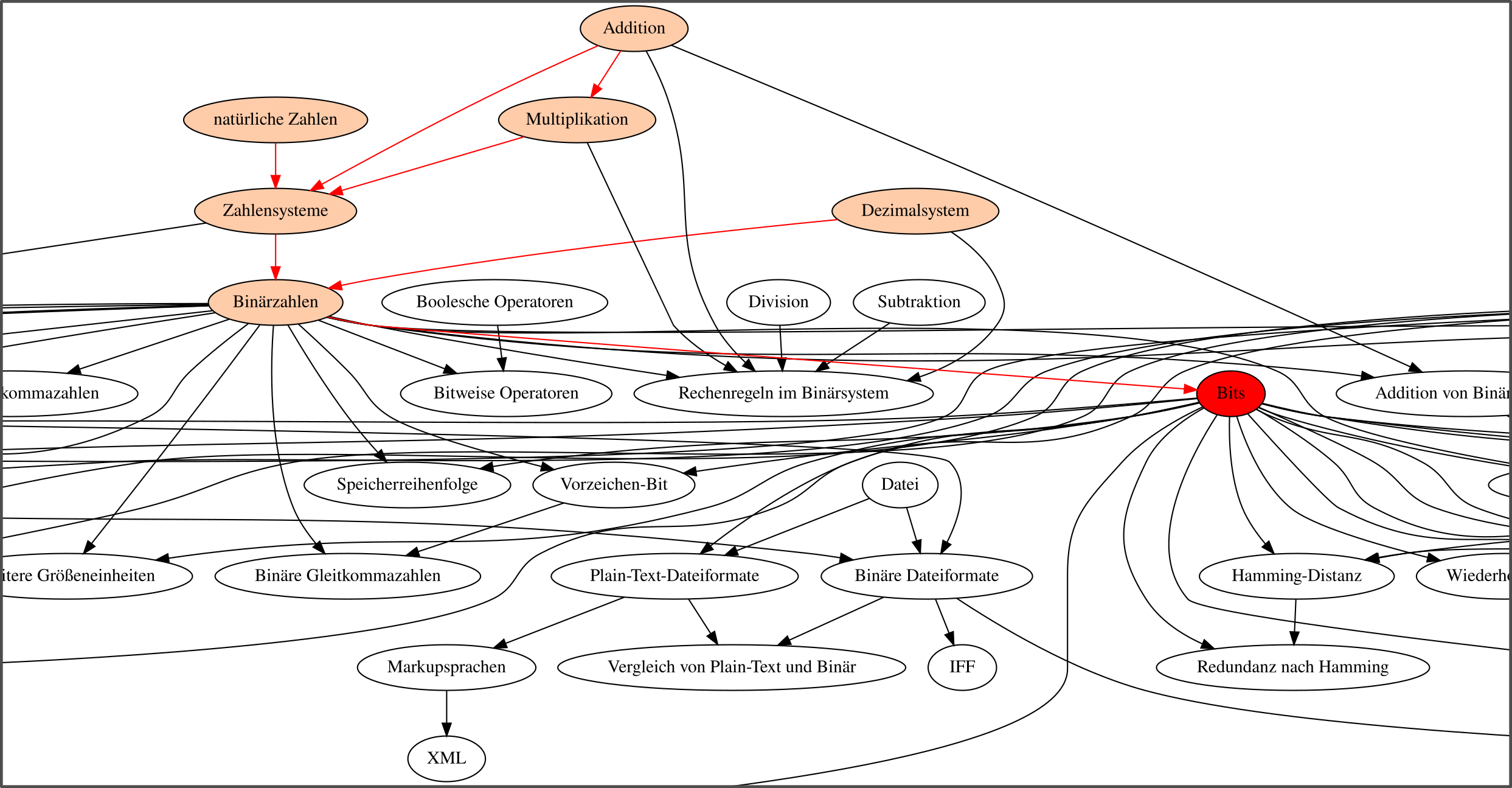
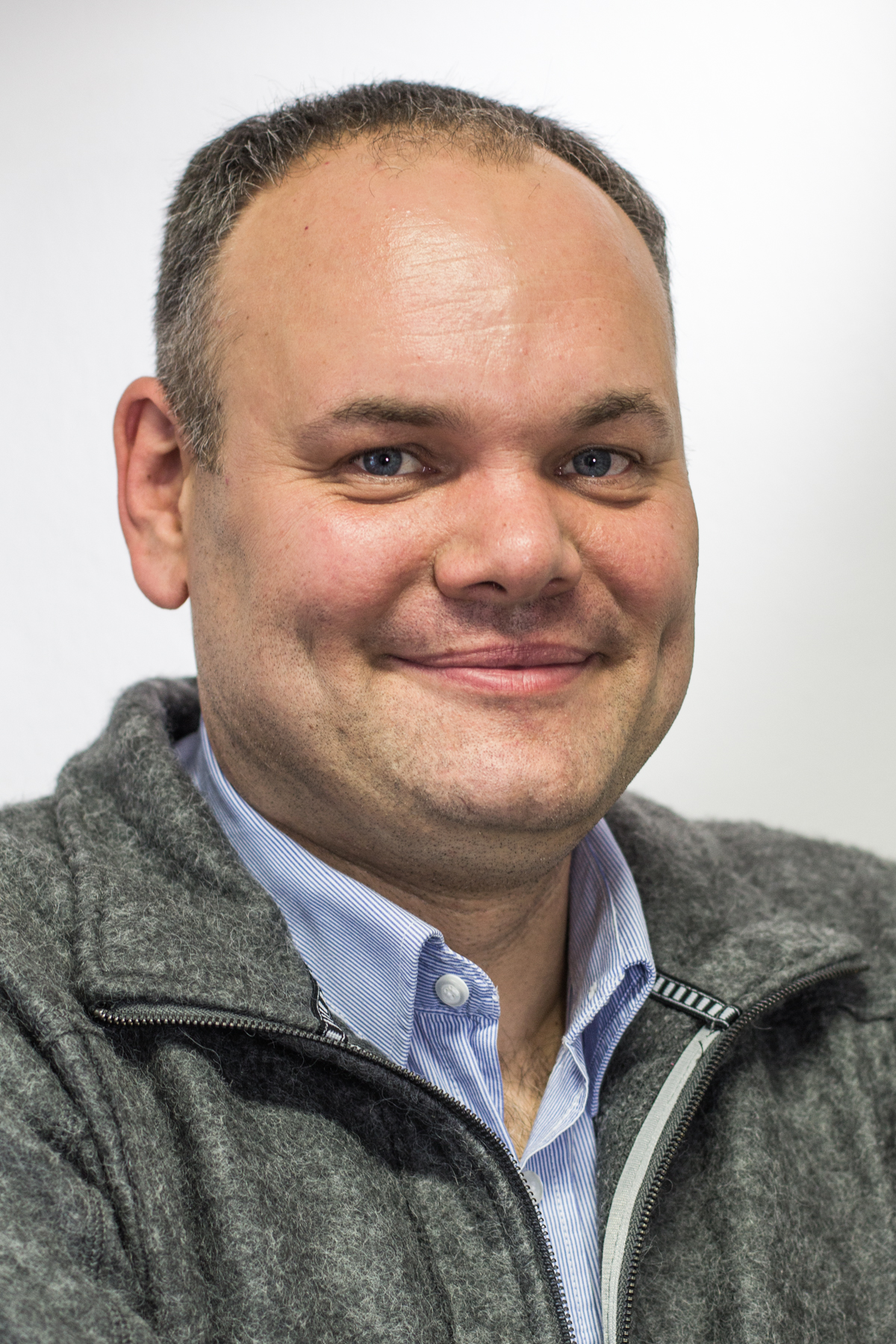
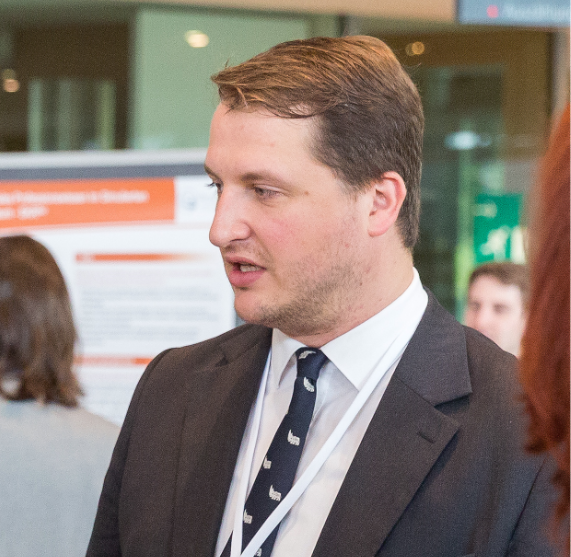 Uwe Reckzeh-Stein
Uwe Reckzeh-Stein 